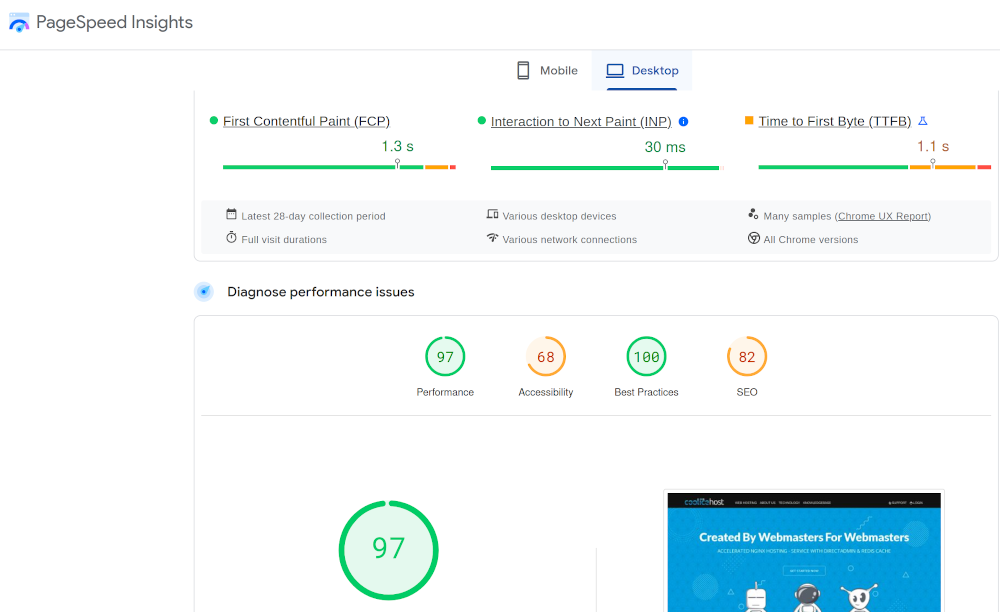
When it comes to the performance of websites, web administrators and SEOs frequently have two questions that may be answered by internet tools:
- What is the speed of my website?
- How can I make my website performs better?
Numerous website-monitoring solutions are available to find these issues if there are some.
Naturally, purchasing the greatest instrument will cost some money. Nevertheless, free substitutes provide performance tracking appropriate for small businesses just starting out. An important aspect of the monitoring procedure is testing the server’s response time. The greatest tools for testing the speed and functionality of websites are compiled here in this article.
Best Tools to Test Website Load Speed:
1. Google PageSpeed Insight

A great free tool for measuring page performance is Google PageSpeed Insight.
It provides you with an overall page speed score as soon as you enter the URL of the website you wish to evaluate. It indicates if the webpage is quick, average, or sluggish based on that score. You can receive two distinct scores: one for the mobile performance of the website and another for the desktop version. Above all, the tool offers guidance on how to maximize reaction time.
2. GTMetrix
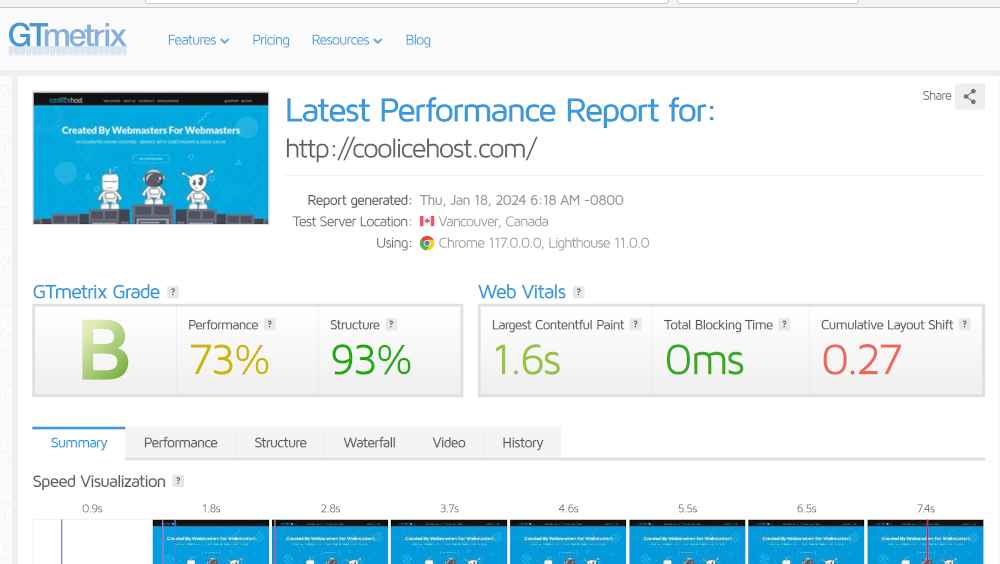
An online tool called GTmetrix is used to measure the speed of web pages. It provides free performance analysis for pages without requiring registration or payment. Simply go to the website, copy the URL of the desired analysis page, and view the outcomes. Register for the premium version or create a free account if you want more monitoring features.
Performance scores are included in the results, which are shown as grades ranging from A to F for both page speed and YSlow (a tool that helps you figure out why your page is sluggish). Additionally, GTmetrix offers page information such as the number of requests, overall size, and load time.
3. Site 24×7
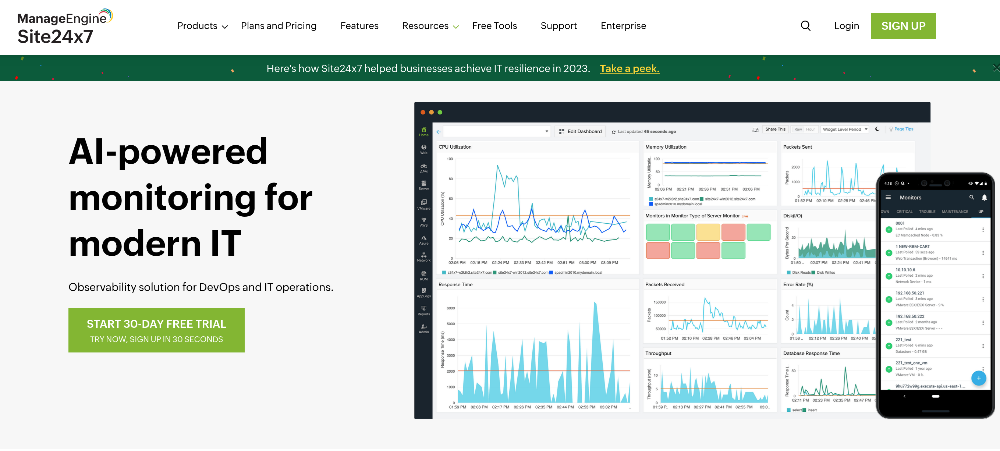
An alternative to Pingdom is Site 24×7, which provides modest or premium subscriptions in addition to a free version.
This affordable utility offers server, application, network, and website monitoring. Additionally included is user feedback for actual user monitoring. It is compatible with Linux, FreeBSD, OS X, and Windows. Fifteen full server monitors and fifty alarms each month are included in the premium plan. Ten warnings and five server uptime monitors are all that are included in the free edition.
4. WebPage Test
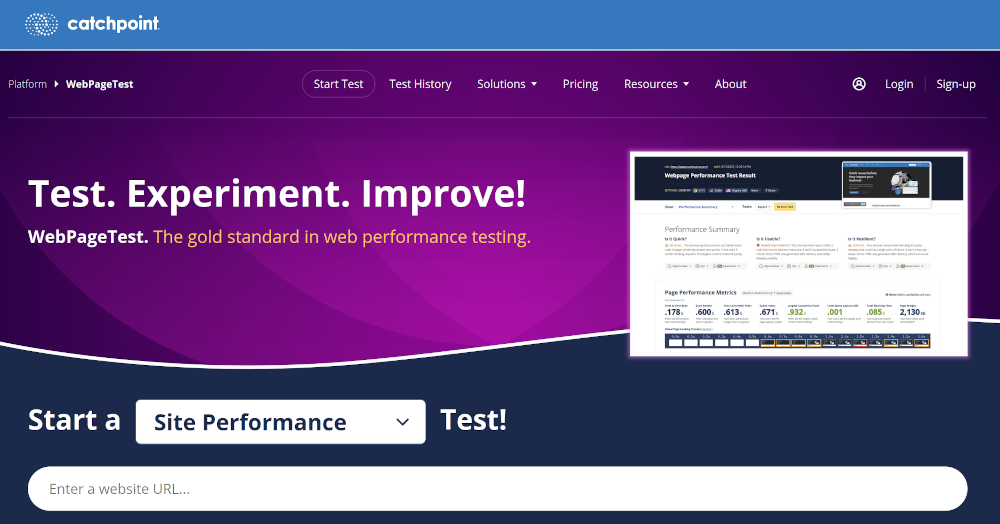
A free testing application called WebPageTest measures speed from several global locations.
To get specific results, it considers the user’s device, browser type, connection speed, and cache status. It provides traceroute analysis, a visual comparison, and both simple and complicated testing.
With advanced testing, you can record the website’s visual loading progress and choose how many tests to run. You can also obtain a first-and-repeat view of the page.
5. Pingdom
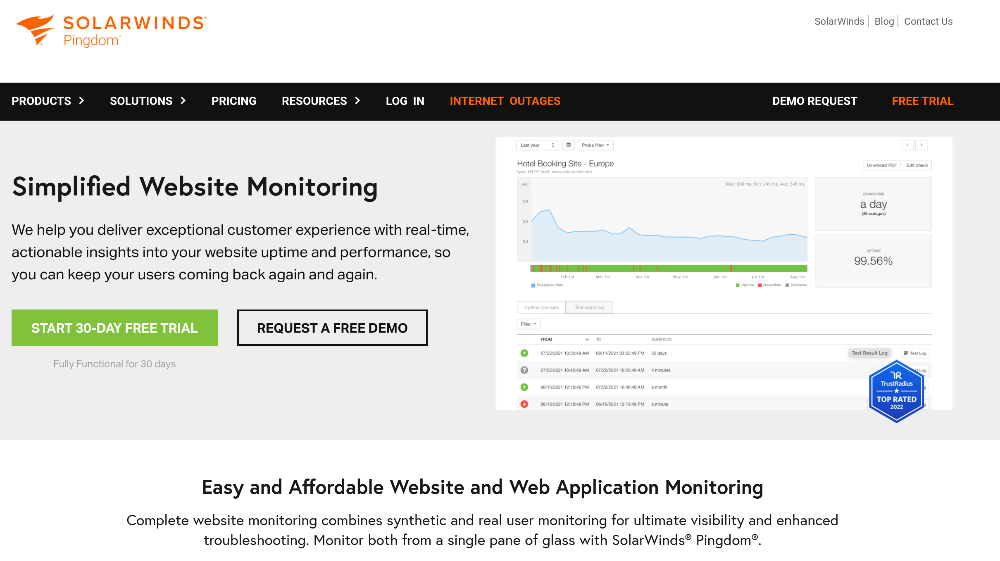
One of the top company performance monitoring services is Pingdom.
It offers minute-by-minute uptime notifications and site performance monitoring. With SMS or email notifications, the tool provides a comprehensive understanding of page speed and performance objectives. It does not, however, come in a free version. Use its free 14-day trial if you’re not sure whether to commit to a membership.
6. Uptime
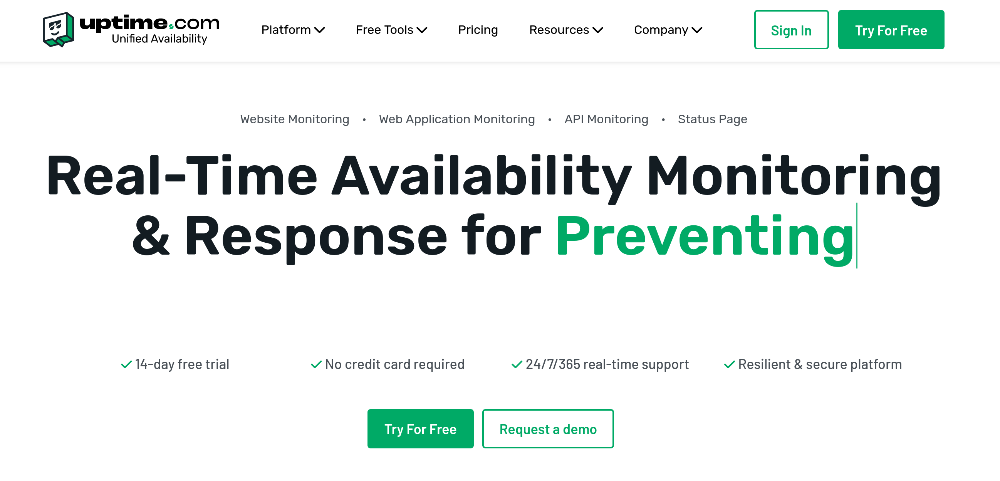
A tool for monitoring domains, servers, and webpages is Uptime. In addition to other services, it provides software for server and page performance monitoring as well as actual user tracking.
There are four distinct plans available, none of which are free. Its monitoring at one-minute intervals over six continents is noteworthy. The Enterprise package gives up to 500 checks, whereas the basic plan only covers 20. A 14-day free trial is available on the platform. Make use of it to evaluate the tool and determine if it is a worthwhile investment for your company.
7. Sitechecker
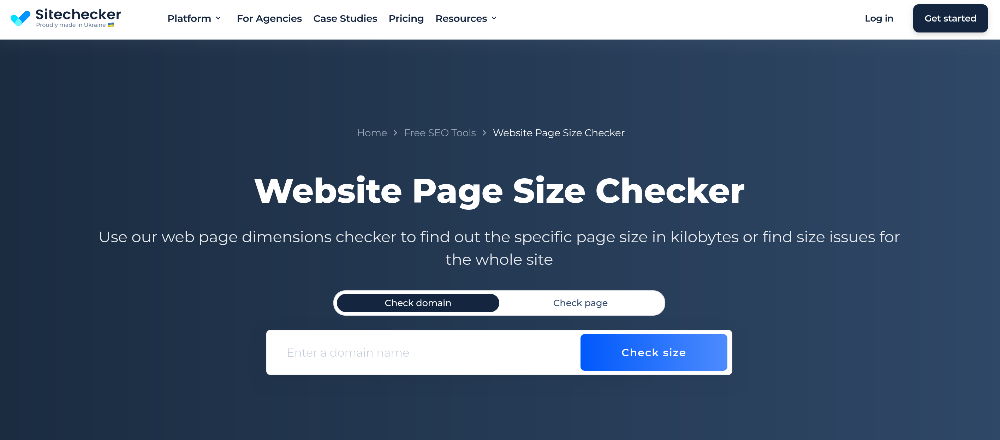
A multipurpose SEO tool for thorough website inspection and optimization is called Sitechecker. It provides tools, including a website crawler, site monitoring, backlink tracker, web domain speed checker, etc., with which you may conduct an extensive website audit.
Sitechecker provides a 14-days free trial without requiring credit card information, but the most of the products require a paid membership. The tools provide the ability to evaluate a domain or a single URL at a time. They offer optimization advice in addition to a comprehensive report.
Final Thoughts
You can keep an eye on the functionality and speed of your website with the use of these tools.
Examine every option and everything it has to offer. Benefit from the free trials. Next, choose the program that best suits your requirements.






